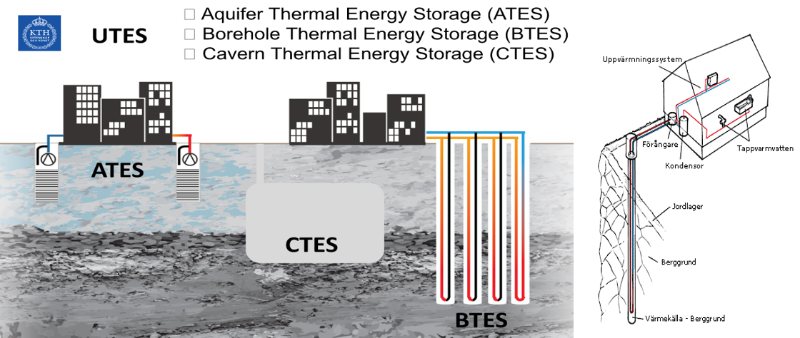- Beräkning av energiflöden för bergkyla, bergvärme och el som går in och ut i olika typ av geoenergisystem
- Bedömning av miljökonsekvenser vid val av olika typ av geoenergisystem
- Geoenergisystem för kylning och uppvärmning av byggnader och processer med och utan hjälp av värmepumpar
- Funktion och regelverk hos viktiga systemkomponenter så som energibrunnar, borrhålsvärmeväxlare, kylvärmepumpar, val av köldbärare och/eller köldmedie
- Metoder för design och konstruktion av olika geoenergisystem, dess relation till övriga VVS system i byggnader och processer
- Marknaden och ansvar hos olika aktörer i typiska geoenergiprojekt, juridiska och organisatoriska aspekter
- Styrning och drift av geoenergisystem samt samspel med elmarknaden
